Матеріали для домашнього читання для 9-10 класів.
Спеціалізована загальноосвітня школа I – III cтупенів № 12
міста Хмельницького
HOME READING
WILLIAM SHAKESPEARE
“ROMEO and JULIET”
Ніколаєва Л.Ф.
вчитель англійської мови
СЗОШ № 12
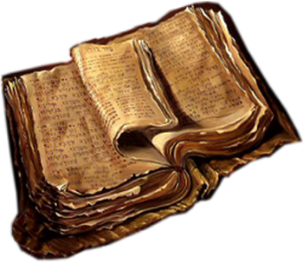
WILLIAM SHAKESPEARE
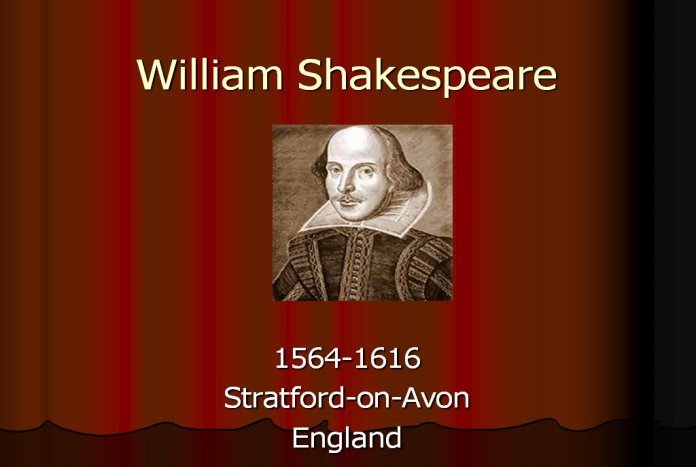
![]()
WILLIAM SHAKESPEARE
LIFE STORY
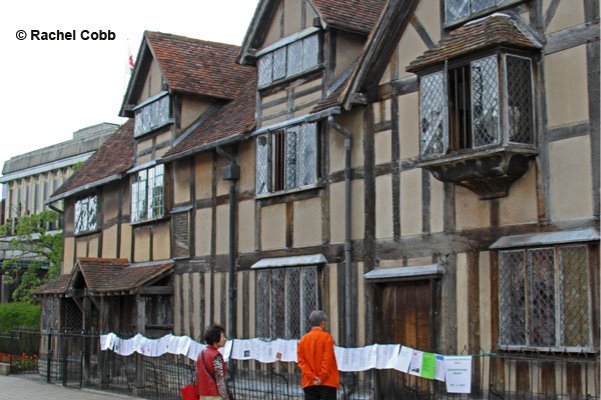
Shakespeare, William (1564 – 1616) . For more than 350 years, William Shakespear has been the world`s most popular playwright. On the stage, in the movies and on the television his plays are watched by vast audiences. People read his plays again and again for pleasure. Students reading his plays for the first time are delighted by what they find.
Shakespeare`s continued popularity is due to many things. His plays are filled with action, his characters are believable, and his language are thrilling to hear or read. Underlying all this is Shakespeare`s deep humanity. He was a profound student of people and he understood them. He had a great tolerance, sympathy and love for all people – good or evil.
While watching a Shakespearean tragedy, the audience is moved and shaken. They are saddened but at peace, repeating the old saying, “There, but for the grace of God, go I”.
A Shakespearean comedy is full of fun. The characters are lively; the dialogues are witty. In the end young lovers are wed; old babblers are silenced; wise men are content. The comedies are joyous and romantic.
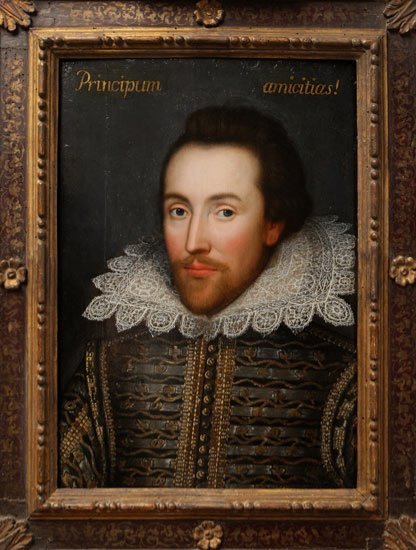
William Shakespeare was born in Stratford – upon – Avon, England, in 1564. This was the sixth year of the reign of Queen Elizabeth I. He was christened on April 26 of that year. The day of his birth is unknown. It has been celebrated on April 23, the feast of St.George.
He was the third child and oldest son of John and Mary Arden Shakespeare. Two sisters, Joan and Margaret, died before he was born. The other children were Gilbert, a second Joan, Anne, Richard and Edmund. Only the second Joan outlived William.
Shakespeare`s father was a tanner and glovemaker. He was an alderman of Stratford for years. He also served a term as high bailiff, or mayor. Toward the end of his life John Shakespeare lost most of his money. When he died in 1601, he left William only a little real estate. Not much is known about Mary Shakespeare, except that she came from a wealthier family than her husband.
Stratford – upon – Avon is in Warwickshire, called the heart of England. In Shakespeare`s days it was well farmed and heavily wooded. The town itself was prosperous and progressive.
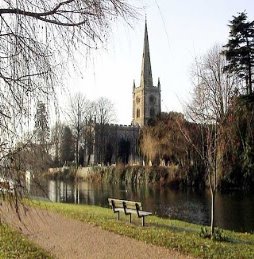
The town was proud of its grammar school. Young Shakespeare went to it, although when or for how long is not known. He may have been a pupil there between his 7th and 13th years. His studies must have been mainly in Latin. The schooling was good. All four schoolmasters at the school during Shakespeare`s boyhood were graduates of Oxford University. Nothing definite is known about his childhood. From the content of his plays, he must have learned early about the woods and fields, about birds, insects and small animals, about trades and outdoor sports, and about the country people he later portrayed with such good humour. Then and later he picked up an amazing stock of facts about hunting, hawking, fishing, dances, music and other arts and sports. Among other subjects, he also learned about alchemy, astrology, folklore, medicine and law. As good writers do, he collected information both from books and from daily observation of the world around him.
At the age of eighteen he married Anne Hathaway. Anne was seven years older than Shakespeare. From this difference in their ages, a story arose that they were unhappy together. They had three children – the first daughter , Susanna , and a twin boy and girl, Hamnet and Judith.
Records of the dramatist`s early life are scarce. According to the well-known legend the local squire forced Shakespeare to leave Stratford and he went to London. In 1593 and 1594 he published two long poems – “Venus and Adonis” and “”Lucrece. Both poems were dedicated to the young Earl of Southampton, a great admirer of Shakespeare`s plays. Until Shakespeare printed his poems the public had no idea he was a poet. He was known as an actor and a writer of successful plays, but at that time plays were not considered works of art.
In 1593 - 1594 Shakespeare became a member in the Lord Chamberlain`s company of actors. He wrote plays for the company and acted in them.. His early plays were performed in the playhouses known as “ The Theatre” and “The Curtain”. When the company built the “Globe” theatre (1599) most of his greatest plays were performed there. By that time Shakespeare was acknowledged to be the greatest of English dramatists. His career as a dramatist lasted for nearly twenty-one years. Around 1610 he left London and passed the rest of his life at Stratford – on – Avon. He died at fifty – two and was buried in the church at Stratford – on – Avon. The following lines are inscribed on his tomb :
Good friend, for Jesus` sake forbear
To dig the dust enclosed here ;
Blessed be he that spares these stones
And cursed be he that moves my bones.
These lines prevented the removal of his remains to Westminster Abbey ; only a monument was erected to his memory in Poet`s Corner.
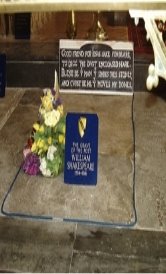
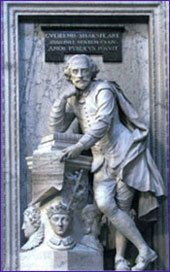
SHAKESPEARE`S LITERARY WORK
Shakespeare has written 5 long poems, 154 sonnets and 37 plays of all kinds – comedies, chronicles, tragedies and farces.
His literary work may be divided into three periods which are sometimes called
Optimistic, Pessimistic and Romantic. Each transition from one period to the next is marked by profound changes in his philosophy and poetics.
The Optimistic Period (1590 – 1601 ). During the first period Shakespeare wrote
poems, sonnets and comedies : “Love`s Labour`s lost”, “The Comedy of Errors”, “The Two Gentlemen in Verona”, “A Midsummer – Night`s Dream”, “The Merchant of Venice”, “Much Ado About Nothing”, “The Merry Wife of Widsor” , ”As You Like It”, “Twelfth Night”,
two tragedies : “Romeo and Juliet”, “Julius Caesar”,
and the historical plays ( chronicles) : “King Henry VI”, “The Tragedy of King Richard II”, “The Tragedy of King Richard III”, “The Life and Death of King John”, “King Henry IV”, “The Life of King Henry V” .
The Pessimistic Period ( 1601 – 1608 ). Shakespeare`s dramatic genius was at its highest in the second period of his literary work. During the second period of his literary work Shakespeare wrote the following tragedies : “Hamlet, Prince of Denmark”, “Troilus and Cressida”, “Othello, the Moor of Venice”, “King Lear”,”Macbeth”, “Antony and Cleopatra”, “Timon of Athens” . He also wrote a few comedies : “All`s Well that Ends Well”, “Measure For Measure”,
“Pericles, Prince of Tyre”. These have been named the dark comedies and differ from those written during he first period as they have many tragic elements in them.
Romantic Period (1608 – 1612 ). During the third period of his literary career Shakespeare wrote the following plays : “Cymbeline”, “The Winter Tale”, “The Tempest”, “Henry VIII”. These plays are called romantic dramas. There are no great problems and strong conflicts in them. Shakespeare entered into beautiful world of fantasy and allegory. Still, all the plays are masterly written and express his belief in the future happiness of mankind.
Shakespeare`s work was highly appreciated by different great writers. He is known all over the world. His plays are staged by all the world`s theatres. Films, ballets and operas are made after his works. Every generation discovers new ideas in them.

A C T I V I T I E S
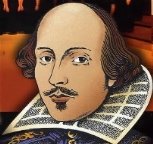
I. Do the following Quiz
1. In which town was William Shakespeare born ?
A. Stratford B. Cambridge
C. London D. Oxford
2. In which century was Shakespeare born ?
A. 16th B. 14th
C. 15th D. 17th
3. What nationality was William Shakespeare ?
A. Italian B. English
C. Scottish D. Greek
4. In what year was Shakespeare born ?
A. 1564 B. 1558
C. 1616 D. 1592
5. The names of Shakespeare`s father and mother were
A. Abraham and Sara
B. William and Anne
C. John and Mary
6. Shakespeare attended Stratford Grammar School also known as the King`s New
School
A. from 1569 to 1579 B. he didn`t attend school C. there are no records of his school attendance, but it is highly likely he attended this school
7. Which river is associated with Shakespeare`s birth place ?
A. The Thames B. The Avon
C. The Tyburn D. The Severn
8. Shakespeare left his home town of Stratford because
A. He was caught poaching on the lands of Sir Thomas Lucy and fled to avoid
prosecution
B. He was apprenticed to his father who was a butcher. He hated the work and ran
away to London.
C. He took a job as a school teacher in the country and left to pursue this career.
D. It is not known for sure how and why he left.
9. Shakespeare was the father of how many children ?
A. 3 B. 10
C. 2 D. 1
10. What is William Shakespeare famous for ?
A. writing novels B. writing plays
C. making films D. defeating the Spanish Armade
11. To whom did Shakespeare dedicate his long narrative poems “Venus and Adonis”, “The Rape of Lucrece” ?
A. Queen Elizabeth
B. William Herbert , Earl of Pembroke
C. Sir Walter Raleigh
D. Henry Wriothesley, Earl of Southampton
12. In 1594 Shakespeare became one of the founding members of what acting
company ?
A. The Lord Chamberlain`s Men
B. The King`s Men
C. The Royal Theatre
13. In what year was the Globe Theatre built ?
A. 1594 B. 1599
C. 1608 D. 1613
14. Which of this conventional statements is the most accurate ?
A. Shakespeare wrote over a thousand sonnets
B. Shakespeare wrote over ten sonnets
C. Shakespeare wrote over a hundred sonnets
D. Shakespeare never wrote sonnets
15. Some time after 1599 – 1600 Shakespeare turned from writing romantic comedies and history plays to tragedies. Which five plays are known as his “greatest tragedies” ?
A. Hamlet, Othello, Macbeth, King Lear, Antony and Cleopatra
B. The Merchant of Venice, Henry IV Part I, Henry IV Part II, Henry V, Twelfth
Night
C. King John, Henry VI Part I, Richard II, Richard III, Henry VIII
D. Measure for Measure, Troilus and Cressida, Coriolanus, Timon of Athens,
Cymbeline.
16. Which famous Shakespeare`s play does the quote “to be or not to be, that is the
question” come from ?
A. King Lear B. Hamlet
C. Romeo and Juliet D. Macbeth
17. Beginning around 1608 Shakespeare wrote plays “Pericles, Prince of Tyre”,
Cymbeline, The Winter`s Tale and The Tempest, often categorized as
A. Masques B. Romances C. Melodramas D. Dark tragedies
18. How many photographs of William Shakespeare exist ?
A . 4 B. 5
C. 10 D. none
19. In what year did Shakespeare die ?
A. 1599 B. 1623
C. 1616 D. 1642
II. Make up and tell the life story of William Shakespeare using this “life-map”.
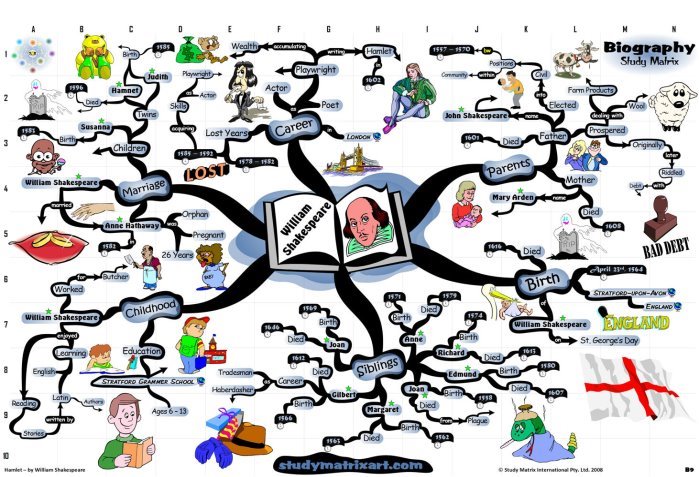
III. Find 10 mistakes in this text .
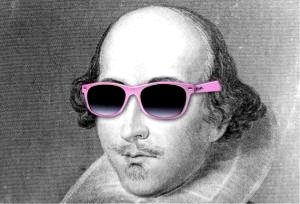
William Shakespeare was a great
writter; he was born in 1564 in
England. His father was called
John and his mother Mary Arden.
William grow up in a modest family.
As a boy he was calm and never shared his brother`s games. At school
he was brilliant, but his father asked
him to left school and become a farmer. In 1582 he married Anne Hathaway, which was ten years older than him. They had four childrens. The first child died very younger. In 1586 he went to London and work in a theatre, and he wrote all his playes between 1590 and 1610. Shakespeare`s most famous books is : “Romeo and Juliet”, “Hamlet” and “Macbeth”.
He died in 1616.
Romeo and Juliet
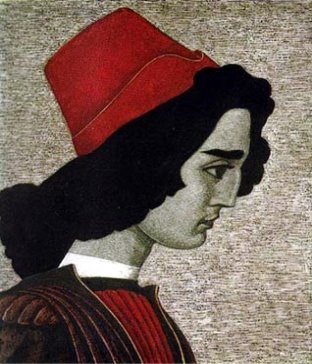
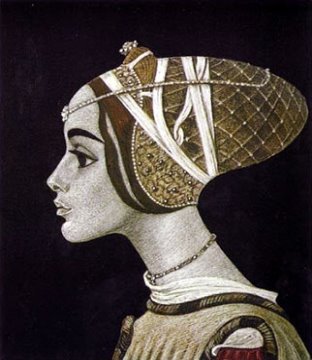
Romeo and Juliet was written early in Shakespeare`s career, probably in 1594 or
1595. It is his first non-historical tragedy. “Romeo and Juliet” was based on the
life of two real lovers who both died for each other and lived in Verona, Italy,
in 1303. Both the Capulets and Montagues existed in Verona at that time and
Shakespeare discovered this tragic love story in Arthur Brooke`s 1562 poem
titled “The tragical Historye of Romeus and Juliet” .
THE PLAY
In Verona , two feuding families, the Montagues and the Capulets, brawl constantly in the streets; the reason for the quarrel is never really made clear. In response to the constant fighting, the prince of Verona issues an edict imposing the death penalty on anyone caught dueling.
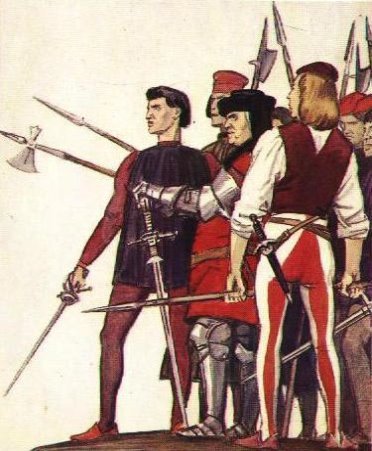
Romeo of the house of Montague has been infatuated with Rosaline, a niece of Capulet. He and his friends sneak into a masked ball at Capulet`s house so that Romeo can see her. During the ball , Romeo catches sight of Juliet, Capulet`s daughter an quickly forgets about Rosaline.

The same night , Romeo creeps under Juliet`s bedroom window and professes his love to Juliet, who is standing on her balcony above him and overhears his sighs of love. She confesses she returns his feelings. With the help of Friar Laurence, Romeo makes plans with Juliet for them to be married in secret.
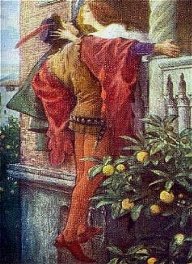
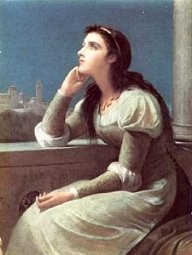
Tybalt, Juliet`s cousin discovers that Romeo attended the ball and sets out to teach the young Montague a lesson. He challenges Romeo in the street. Romeo tries to avoid a duel because he is in love with Juliet. However, Romeo`s best friend, Mercurio, takes up Tybalt`s challenge and is killed by Tybalt. Before he realizes what he is doing, a distraught Romeo draws his sword and kills Tybalt in turn.
As a result of the bloodshed, despite the provocation, the Escalus, the prince of Verona, banishes Romeo. Romeo has time to consummate his marriage to Juliet and bid her goodbye. He hopes that they will soon be reunited.
The phrase “Romeo, Romeo, wherefore art thou Romeo” , is second only to Hamlet`s “To be or not to be” as the most famous quotation from Shakespeare. “Wherefore Romeo” does not mean “where” , it means “why” are you from family that feuds with mine.
Juliet`s parents, meanwhile, press her to marry Paris. With Friar Laurence`s help, Juliet comes up with a desperate plan to avoid her parents` wishes. She obtain a drug that will make her seem dead for forty-two hours. While she is comatose, Friar Laurence will send word to Romeo so that he can rescue her from her family tomb.

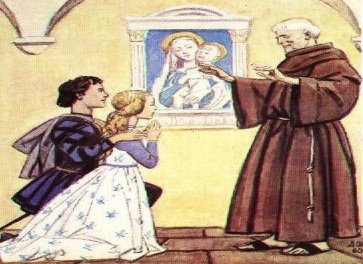
Friar Lawrence`s letter never gets to Romeo. Instead he hears that Juliet has died. Grief-stricken, Romeo buys some poison with intention to kill himself. Friar Laurebce discovers that Romeo never got his letter, and in horror he rushes to Juliet`s tomb. Too late. At Juliet`s tomb, Romeo encounters Paris, who is mouring for his Juliet. In grief for Juliet`s loss, the two men fight and Romeo kills Paris. Entering the tomb, Romeo discovers “dead” Juliet and, swallowing the poison, commit suicide at her side. Friar Laurence arrives at the scene just as Juliet wakes up. She discovers the body of her beloved Romeo beside her, takes Romeo`s dagger and stabs herself in the heart.
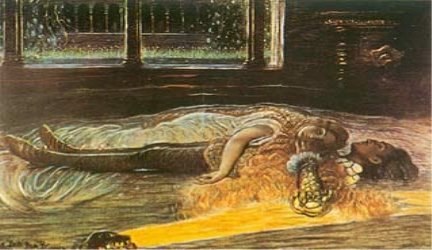
The prince and the parents arrive and Friar Laurence explains what has happened. Faced with awful price their feud has cost them, the Montague and Capulets swear to end the bitterness between two families.
Dame Paggy Ashcroft says : “There has been a recent fashion in the theatre to define a certain kind of play as a “black comedy.” I will define Romeo and Juliet as a “golden tragedy” ”.
ACTIVITIES
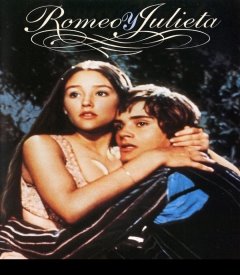
I. ROMEO AND JULIET STUDY GUIDE
1. What are the names of the two feuding families when the play opens ?
2. Was Romeo a Capulet or a Montague ?
3. Where was the setting of Romeo and Juliet ?
4. Who was Romeo in love with before Juliet ? How did she feel ?
5. Whom did Lord Capulet want Juliet to talk to at the party ?
6. Where did Romeo and Juliet meet ?
7. Why was Romeo banished from Verona ?
8. Who helped Romeo and Juliet get married ?
9.What went wrong with Friar Lawrence`s plan to help Romeo and Juliet escape
Verona ?
10. How did Juliet die ?
11. What happened to the Montague and Capulet families ?
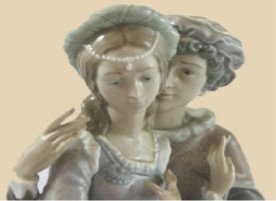
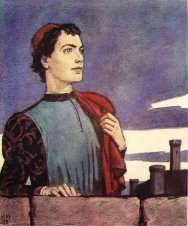
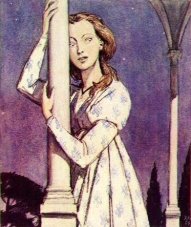
II. Define the following words. Be able to match the words to the definitions :
1. grievance a) wrongdoing, sin
2. transgression b) brave and noble
3. predominant c) main, having influence over others
4. sallow d) arrogant
5. gallant e) changeable, unpredictable
6. exile f) banish
7. eloquence g) speech that is vivid, graceful, persuasive
8. fickle h) injustice, complaint
9. vial i) headstrong, willful
10. wayward j) sickly, pale, yellowish in colour
12. loathsome k) disgusting
13. remnant l) a small bottle containing liquid
14. haughty m) pieces, remaining person or thing

III. ROMEO AND JULIET : TYPES OF LOVE
When the pupils first begin the play , the may think of Romeo and Juliet in terms of romantic love only, but there are many other kinds of love presented in the play . You can offer the pupils to list and define various kinds of love, examine the characters and their relationships in terms of the kinds of love they represent, and find textual examples to illustrate these kinds of love throughout the play.
What to do :
1. In a group discussion , pupils will brainstorm the types of love they see represented by characters in the first two acts of the play. These may include :
a) unrequited love : Romeo for Rosaline, Paris for Juliet
b) romantic love : Romeo and Juliet
c) parental love : Lord and Lady Capulet for Juliet, Lord and Lady Montague for Romeo, nurse for Juliet
d) friendship : Romeo and Benvolio, Romeo and Mercutio, Rpmeo and Friar Laurence, nurse and Juliet
e) love of family honour : Tybalt, Mercutio, Romeo
2. Assign pupils in pairs or small groups and ask them to find and cite examples from the text of the play that illustrate each type of these types of love. For example, Romeo`s crush on Rosaline could be illustrated by the lines :”She has forsworn to love, and in that vow” – “Do I live dead that live to tell it now” (1.1.231-2)

3. When the pupils have found a number of examples from acts one and two, have them share their findings with class by reading them aloud and providing line citation for each category of love.
4. The information gathered from the text could be used as the basis for a composition. For example , pupils could compare and contrast two types of love, citing lines from the text to support their ideas.
5. Class discussion about types of love could serve as the basis for improvised performance where the pupils act out different love relationships in the play or in “real life”.
6. The pupils` discoveries could also spark an art project for which they create collages and posters representing different characters and types of love.
|
Type of Love |
Definition |
Characters |
Quotes from the text |
|
Unrequited love |
|
|
|
|
Romantic love |
|
|
|
|
Parental love |
|
|
|
|
Friendship |
|
|
|
|
Love of Family/Honour |
|
|
|
|
Other |
|
|
|

IV. ROMEO AND JULIET
T E S T
1. What are the names of the two feuding families when the play opens ?
a. Tybalt and Capulet
b. Montague and Capulet
c. Montague and Benvolio
d. Romeo and Juliet
2. What house did Romeo come from ?
a. Montague
b. Capulet
c. Benvolio
d. Paris
3. What was the setting of “Romeo and Juliet” ?
a. Mantua, Italy
b. London, England
c. Atlanta, Georgia
d. Verona, Italy
4. Who did Romeo love before Juliet ?
a. Rosaline
b. Bethaline
c. the Nurse
d. Olivia
5. Whom did Lord Capulet want Juliet to talk to at the party ?
a. Rosaline
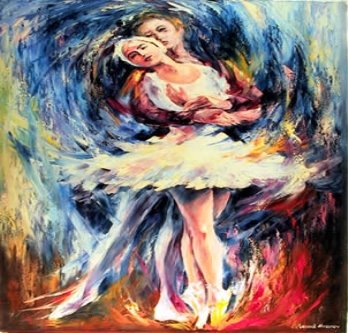 b. Tybalt
b. Tybalt
c. Paris
d. Romeo
6. Where did Romeo and
Juliet meet and fall in
love ?
a. in a graveyard
b. on a balcony
c. at a party
d. at Friar Lawrence`s place
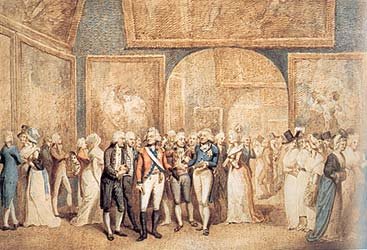 7. Romeo and Juliet meet
7. Romeo and Juliet meet
a. at a Capulet masquerade ball
b. at a Montague masquerade ball
c. at a royal dinner party
d. in the public square
e. in a garden
8. Why was Romeo banished from
Verona ?
a. he killed Juliet because he could not marry her
b. he killed Tybalt in a duel
c. he had a new job
d. he killed Mercutio in a duel
9. Who agreed to marry Romeo and Juliet ?
a. Friar Tuck
b. Friar Lawrence
c. Friar Paris
d. Prince Escalus
10. Tybalt became furious with Romeo when
a. he heard of Romeo`s marriage to Juliet
b. he was told that Romeo had climbed the wall into the Capulet garden
c. he spotted Romeo at the Capulet party
d. Romeo called him a villain
e. Romeo killed Tybalt`s friend
11. What message did Friar Lawrence
send Romeo after he was sent away?
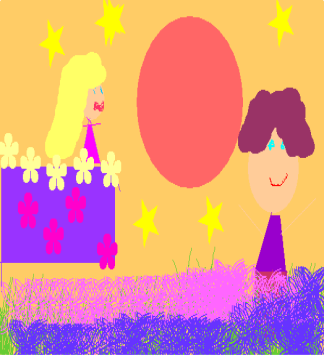 a. Juliet is dead
a. Juliet is dead
b. Capulet found out about the marriage
c. Prince Escalus will let you come
back to Verona
d. Go to Juliet`s grave, she drank
a potion and will wake up
12. How did Juliet die ?
a. She was stabbed by Benvolio
b. Her father killed her
c. She took poison
d. She stabbed herself with Romeo`s
dagger. 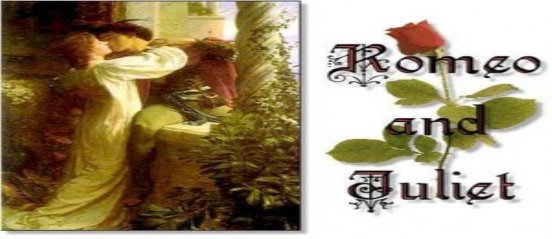
13. How did Romeo die?
a. He died of a broken heart
b. He took poison
c. He stabbed himself with a dagger
d. Lord Capulet killed him
14. What happened to the Montague and Capulet families ?
a. They fought in a duel over the deaths of their children.
b. They killed Friar Lawrence
c. Thy ended the feud
d. They decided to keep fighting because their children were dead
V. Learn the poem by heart.
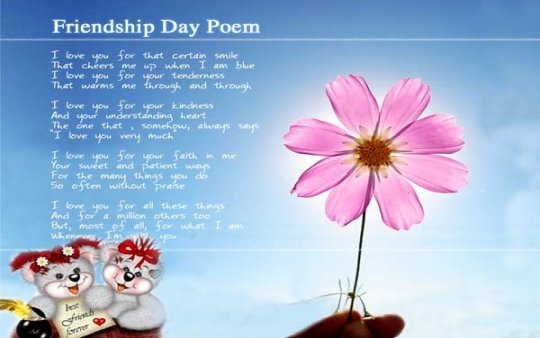
VI. Possible questions for oral discussions:
1. What is the name of Romeo`s servant ?
2. What news did he bring to Romeo ?
3. What kind of animal did they ride to Verona ?
4. What did the apothecary sell to Romeo ?
5. How was someone who had sold deadly poisons punished in Mantua ?
6. Who was supposed to deliver the letter to Verona ?
7. Why wasn`t the letter delivered ?
8. After discovering the letter had not been delivered, what did Friar Lawrence set out to do ?
9. Who was at Juliet`s tomb when Romeo arrived there ?
10. What was he doing there ?
11. What did he do when he heard Romeo approaching ?
12. What did Romeo give to his servant to give to Romeo`s father ?
13. Did Romeo`s servant obey Romeo`s command to go away ?
14. What did Paris think Romeo was doing at the Capulet`s tomb ?
15. What happened between Romeo and Paris ?
16. What was Paris`s last request ?
17. What happened to Romeo after he drank the poison ?
18. How did Juliet die ?
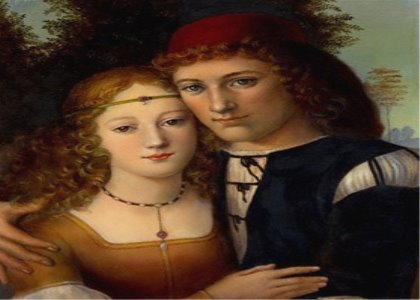
1


про публікацію авторської розробки
Додати розробку
